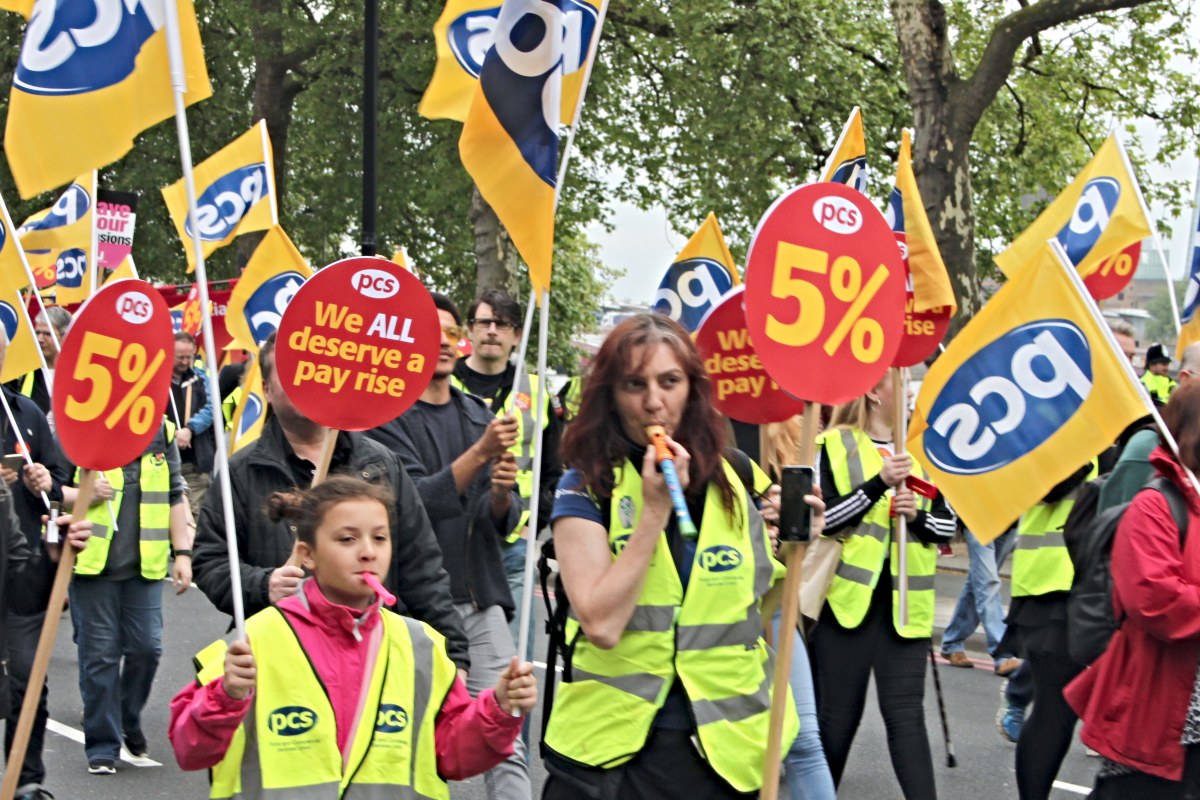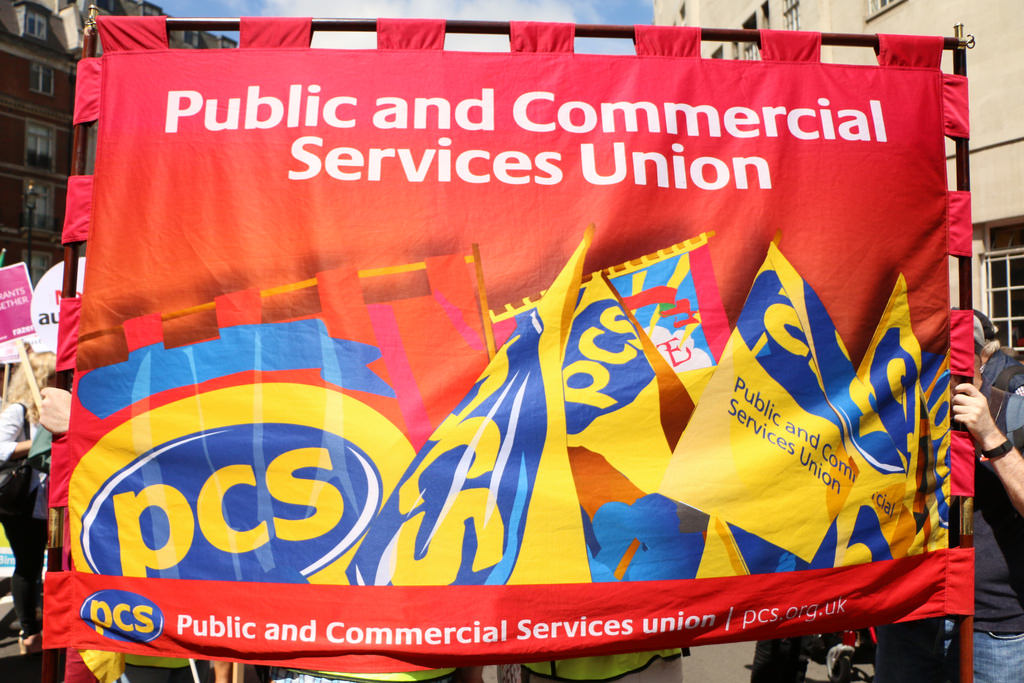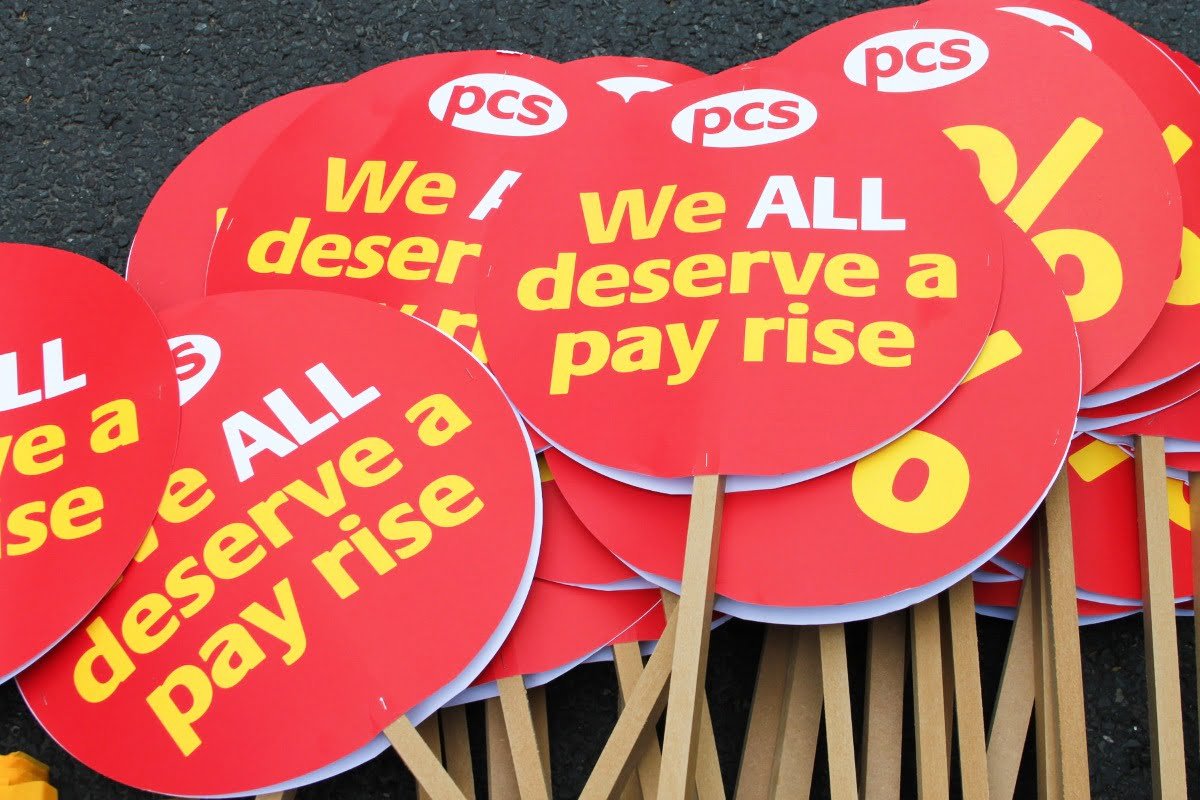With the Tory government embroiled in crisis over Brexit, now is the perfect opportunity for union members to mobilise and strike.
In December, members of Left Unity (LU) voted for Janice Godrich to be their candidate for the position of Assistant General Secretary (AGS) of the public sector union, PCS. Janice was the candidate of the Socialist View group of PCS members. They and their supporters defeated Chris Baugh, the Socialist Party candidate, whose proposed strategy for the union’s pay campaign was also voted down.
Sadly, Janice was unable to accept the Left Unity nomination due to ill health. She would have made an excellent AGS and we wish her a speedy recovery.
The LU national committee correctly felt that a new election was required. The Socialist Party demanded that Chris Baugh, their defeated candidate, just be given the nomination. But clearly to endorse a candidate whose election platform had only just been rejected by members would be wrong.
Struggle over pay
 The context of the AGS election is the union’s pay campaign. The strategy agreed by the PCS conference was to strengthen the union in every workplace with a view to winning an aggregated national pay ballot for industrial action. With Brexit looming, many believe the union has a unique opportunity to leverage the government using this strategy. This was endorsed by LU.
The context of the AGS election is the union’s pay campaign. The strategy agreed by the PCS conference was to strengthen the union in every workplace with a view to winning an aggregated national pay ballot for industrial action. With Brexit looming, many believe the union has a unique opportunity to leverage the government using this strategy. This was endorsed by LU.
Meanwhile, Baugh’s proposal for disaggregated ballots with a shopping list of demands for each PCS group was rejected. This was correct: this strategy would risk diluting and dividing the struggle, and would throw away the opportunity provided by Brexit to force concessions from the Tory government.
It is unfortunate that the Socialist Party continues to demand the LU nomination for Baugh, despite his defeat last month. But what is even worse is that the Socialist Party’s ill-conceived pay campaign strategy – which has little wider support in the union – is still being pushed by Baugh and his supporters, regardless of the decisions of LU and of the PCS national conference.
We need unity behind a successful pay campaign that will defend the living standards of civil servants. But instead we have the Socialist Party sabotaging a democratically agreed strategy, simply to justify its continued calls for Chris Baugh to be the LU candidate for AGS.
Sectarianism
This is sectarianism of the worst sort – putting the interests of the Socialist Party above the interests of the union membership. What’s at stake is the success or failure of a pay campaign that will affect the living standards of tens of thousands of civil servants. But for the Socialist Party, that consideration comes a poor second next to getting their man elected.
Unfortunately this is not an isolated instance of Socialist Party sectarianism. The Socialist Party argues that Chris Baugh must be elected as AGS because otherwise the union risks “bend[ing] the knee to a Labour government”. It has also suggested that Mark Serwotka, the general secretary of the union, will “sell out” to a Corbyn government.
Millions of people are looking to a Corbyn government to solve their problems. This includes civil servants, who are expecting Corbyn to deliver on his promise to reintroduce national collective pay bargaining for the civil service. This is why the bankers and bosses are preparing to attack a Corbyn government, and why unions like PCS should be preparing to defend it.
It’s true that the labour movement will have to fight if we want to see Corbyn’s policies carried out. It won’t all be given to us on a plate. But by painting Corbyn as an enemy of PCS members, the Socialist Party is helping no-one but the Tories and the bosses.
Fighting for the membership
 Local branches of PCS Left Unity are currently going through the nomination process for a new AGS candidate. The Socialist View group is backing Stella Dennis, a long-standing activist with a strong track record for militant and successful industrial organising.
Local branches of PCS Left Unity are currently going through the nomination process for a new AGS candidate. The Socialist View group is backing Stella Dennis, a long-standing activist with a strong track record for militant and successful industrial organising.
Later this year, when PCS members come to vote in the AGS election, their decision will have serious implications for the future of the union. They may be faced with a choice of electing someone who is willing to sabotage a pay campaign in order to win a position, or electing someone who is ready to carry out union policy and defend members’ interests. The ability of PCS to act in the interests of its members is at stake.






